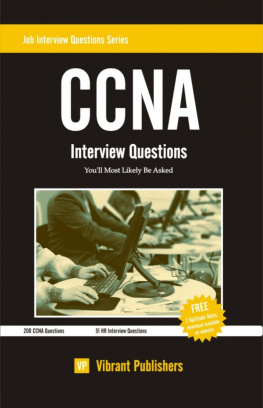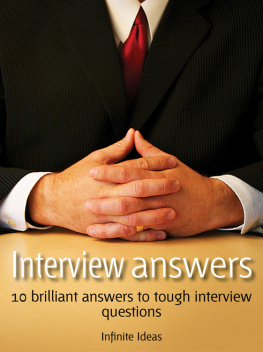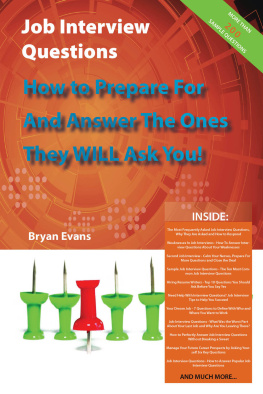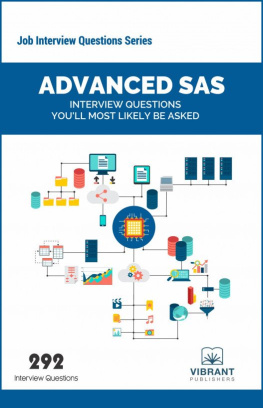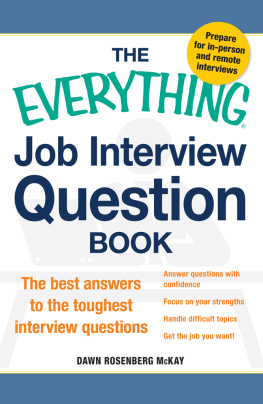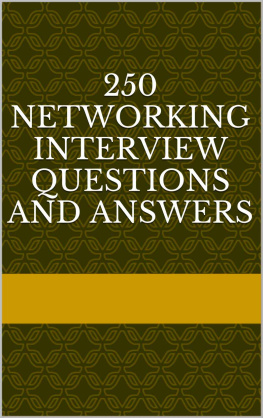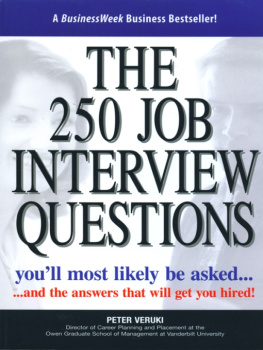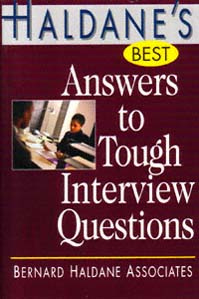Thank you for downloading this AMACOM eBook.
Sign up for our newsletter, AMACOM BookAlert , and receive special offers, access to free samples, and info on the latest new releases from AMACOM, the book publishing division of American Management Association.
To sign up, visit our website: www.amacombooks.org
To learn more about the American Management Association visit: www.amanet.org

The copyright information for this title may be found at the end of this eBook file.
HIGH-IMPACT
INTERVIEW
QUESTIONS
HIGH-IMPACT
INTERVIEW
QUESTIONS
SECOND EDITION
701 Behavior-Based Questions to
Find the Right Person for Every Job
VICTORIA A. HOEVEMEYER
Foreword by Paul Falcone

To my father, Kurt, for all his love and support and in memory of
the two most incredible women Ive ever known
my grandmother, Dorothy Caroline Hiser,
and my mother, Donna Joyce.
CONTENTS
by Paul Falcone
by Richard Finnegan
Foreword
THE CONCEPT OF behavior-based interviewing has been around for some time now, but nowhere is the art and technique developed as well as in Victoria Hoevemeyers High-Impact Interview Questions: 701 Behavior-Based Questions to Find the Right Person for Every Job. Finally an entire text is dedicated to the critical task of framing interviewing questions around candidates real-life experiencesquestions that will prompt factual answers and focus on future competencies and abilities.
Interviewing has never been a simple process, primarily because we all know how hard people can be to read. Many job candidates are well-studied interviewees, but their performance, once hired, may not coincide with the superstar/hero figure they portrayed during initial evaluation. So much rides on hiring the right peopleteam camaraderie, group productivity, and a positive work environmentthat one poor decision could set you and your team back significantly. Its not even uncommon to see managers who tend to leave positions unfilled for long periods of time for fear of hiring someone who doesnt fit in.
Fair enough, but we cant lead our business lives by avoidance or fear of making mistakes. If its true that the productivity of human capital is the only profit lever in todays knowledge-based economy, then weve got to hire the best and brightest and develop them to their fullest potential. Your front-end people reading skills and selection abilities, therefore, will remain one of your most important portable skill sets as you advance in your own career.
Even if youre not totally comfortable now with your abilities in this area, fear not! Interviewing to make high probability hires (remember, no ones asking for guarantees when it comes to people forecasting) is a learnable skill. With just a little focus and commitment on your part, you can develop an interviewing routine thats uniquely yours. And employing a behavior-based interviewing format based on the competencies you value and hold dear will give you greater confidence in your abilities to spot talent, which in turn will result in stronger hires (which further strengthens your confidence!).
Behavioral interviewing is based on real analysis of historical on-the-job performance. Victoria Hoevemeyers new book makes it so much easier to get to know the real candidate by providing you with competency-based questions for specific scenarios. Whether youre looking to identify corporate-wide competencies or job-specific competencies in a prospective new hire, youll find behavioral questions specific to multiple scenarios.
The premise is simple: Behavioral interview techniques attempt to relate a candidates answers to specific past experiences and focus on projecting potential performance from past actions. By relating a candidates answers to specific past experiences, youll develop a reliable indicator of how that individual will most likely perform in the future. Behavioral interview questioning strategies do not deny that people can learn from their mistakes and alter their behaviors. However, they do assume that future behavior will closely reflect past actions.
Furthermore, behavior-based questioning techniques ensure spontaneity since candidates cant prepare for them in advance. Rehearsed answers to traditional interview questions go by the wayside in an ad hoc environment where candidates tell stories about their real-life work performance. And because behavioral interview questions tie responses to concrete past events, candidates naturally minimize any inclination to exaggerate answers. Hence, youre assured of more accurate responses during your interview, and youre provided with specific information to use a little later down the line when checking references.
The unpredictable course of a behavior-based interview exchange may sound something like this:
You: | Tell me what you like least about being a manager at your current company. |
Candidate: | Oh, its definitely having to discipline, lay off, or terminate employees for poor performance. Weve had a lot of restructuring in the past year or so. |
You: | Sure, thats understandable. I agree thats no fun. Tell me about the last time that you had to terminate someone for cause: What were the circumstances, and how did you handle it? |
Candidate: | Well, the most recent term for cause in my group happened about four months ago when a member of my staff just couldnt or wouldnt focus on his job. He made continuous errors on the manufacturing line, and it seemed like no amount of training or supervision could get him to focus on his work and lessen the breakage and scrap rate he was experiencing. |
You: | Oh, thats too bad. Tell me more about it. |
Candidate: | Well, I first went to the union steward and gave her a tip that he was having continuous problems because I knew that they were friends and that he trusted her. I thought she might be able to help him and quietly find out what was really bothering him. I also asked her to give him the Employee Assistance Program (EAP) brochure to make sure he had resources available to help him if personal issues in his life were getting in the way. Unfortunately, she came back to me a few days later, and said he wouldnt let her in. Then she reminded me that since she was a union steward, she really couldnt be involved any further in any activities that could have negative ramifications for a union member, which I fully understood. |
You: | Interesting. What was your next step? |
Candidate: | Well, I then decided to go straight to the employee with his prior years performance appraisal in hand. He had scored 4 out of 5, meaning that he had really done well, and I told him that I couldnt give him a 4 if I had to grade him right now. I honestly told him that if the performance evaluation period were right then and there, hed probably get a score of 2, meaning that he didnt meet company expectations. I told him the good news, though, was that it wasnt the time for the annual evaluation and that it wasnt too late to turn things around. I just wanted to know if and how I could help. Unfortunately, he wouldnt open up to me either, so we just left it at that. |
Next page

